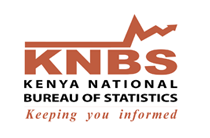The Kenya National Bureau of Statistics joins other National Statistical Offices across Africa in marking this important day. The African Statistics Day is celebrated to increase public awareness about the role played by statistics towards socio-economic and demographic development in Africa. The theme for this year is “Modernizing National Statistical Systems to Support Sociocultural Development in Africa.” This theme is apt in line with the United Nations declaration that 2021 be the international year of creative economy for sustainable development. Culture plays an important role in social and economic development. It nurtures and bolsters the societal fabric that holds the society together. Globally, cultural and creative industries are said to have considerable impact on national economies of all countries.
This year’s theme resonates with KNBS effort to continuously respond to the evolving data demands. This calls for strategic planning for statistics production, while leveraging on technology and non-traditional sources of data such as citizen generated data and Big data, as well as investment in data science. Statistical systems need to transform and modernize to cope up with enhanced demands for data brought about by global and regional developmental programmes. In Kenyan context, the National Statistical System (NSS) consists of data producers mainly National and County governments, suppliers, and users of statistics. The statistical products of NSS are contained in the various statistical publications, such as the annual Economic Survey, county specific Statistical Abstracts and other analytical reports produced from time to time.
The Kenya Strategy for the Development of Statistics (KSDS) as a mechanism of coordinating the NSS focuses on improving data quality, promoting statistical advocacy and enhancing infrastructure for production of statistics. In line with this, KNBS is finalizing a Kenya Statistics Quality Assurance Framework (KeSQAF) which will be used to assess and monitor the quality of statistics produced by various players.
Towards modernizing the NSS, KNBS is embracing open data systems to increase accessibility and usability of data and improve data collection methods from traditional Pen and Paper to Computer Assisted Personal Interview (CAPI). This shift was exemplified in data collection for the 2019 Kenya Population and Housing Census, which was purely CAPI at all the stages. Further, the Bureau is updating the socio-economic database by integrating survey, census and geospatial data.
In 2019, United Nations adopted a resolution declaring the year 2021 “International Year of Creative Economy for Sustainable Development.” This was in recognition of the potential that creative economy has to support developing countries in diversifying production and exports and to deliver sustainable development in an inclusive and equitable manner. It is in this regard that the ASD theme was derived.
The Culture and Creative Industry (CCI) is one of the focus sectors in the modern data ecosystem, particularly in the wake of the COVID-19 pandemic. This sector has emerged as a significant contributor not only to livelihoods but also to preservation of heritage in Africa and beyond. Internationally, culture has been identified as a key enabler and driver of sustainable development and has been integrated in the United Nation’s 2030 Agenda for sustainable development, due to its direct linkage to various Sustainable Development Goals. At the continental level, culture is entrenched in the 5th aspiration of the African Union Agenda 2063 ‘An Africa with a strong cultural identity, common heritage, shared values and ethics by 2063’ and this year’s theme of ‘Arts, Culture and Heritage: Levers for Building the Africa We Want.’
Within the National Statistical System, data on culture and the creative industry is collected through surveys, censuses and administrative data. However, the data on CCIs is inconspicuously captured within other sectors of the economy such as tourism, manufacturing, ICT; and in other domains of social statistics such as health, gender and governance. Given the importance of this sector, KNBS is guiding development of a framework for the compilation of culture and creative industry statistics that will bring out its distinct contribution to development; and provide information for monitoring of SDG indicators related to culture and creative industry.
To this end, several milestones have been achieved. First, KNBS has collaborated with the Kenya National Commission for UNESCO (KNATCOM) to develop a new framework for measuring and collecting data on CCI. Through this collaboration, capacity has been built on compilation of culture indicators as required in SDG 11.4.1 on protection and conservation of all cultural and natural heritage. Second, KNBS is collaborating with Kenya Film Commission and other stakeholders to develop the Film Industry Satellite Account (FISA). The main objective of FISA is to estimate the contribution of the film industry to the country’s gross domestic product. The film industry forms a major part of the culture and creative industry.
In the coordination of NSS, KNBS appreciates the continued support of government entities including county governments; development partners and other stakeholders in ensuring adequate sensitization and capacity building in the production of statistics.
We wish to express our appreciation to all data providers, for the continued support in supplying data in our endeavor to ensure timely availability of statistics for use in evidence-based decision making. We want to encourage users of statistics to take advantage of data provided across the NSS for use in their various spheres.
We celebrate the African Statistics Day, the African way!
